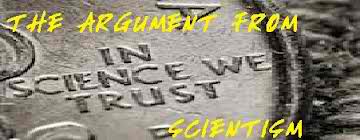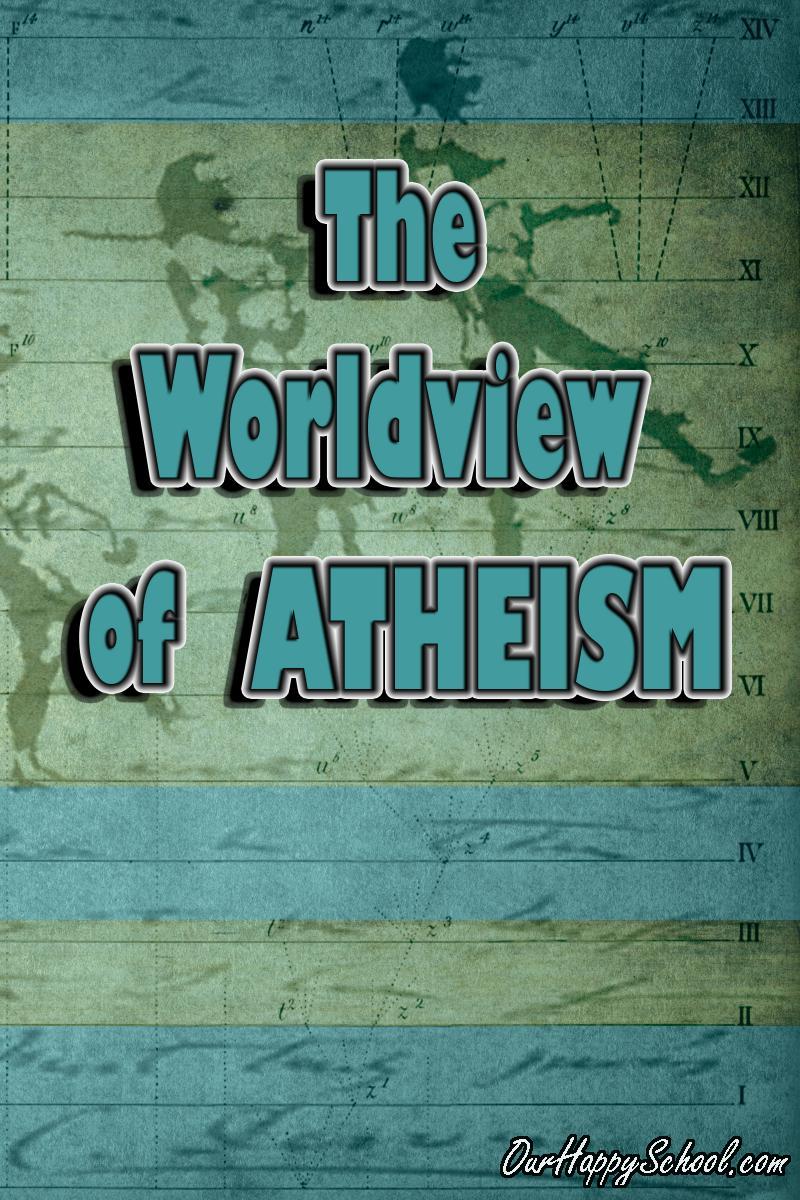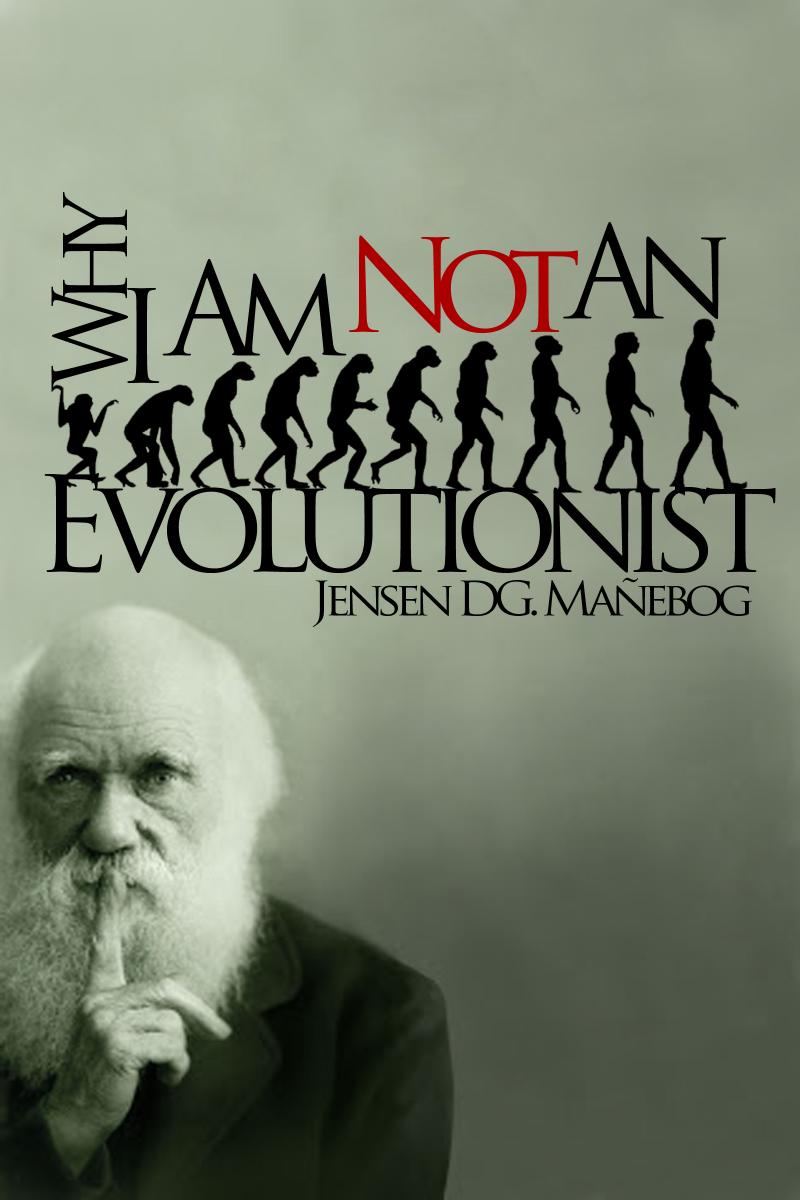Sponsored Links
Scientism: The worship of god named science
© 2013 by Jensen DG. Mañebog
OBJECTIVES
After finishing this module, you are expected to be able to:
1. Explain scientism as a philosophical worldview
2. Compare it to Darwinism
3. State the ideology’s status as a basis of morality
4. Identify scientism’s strengths and weaknesses
TOPICS
1. Definition of scientism
2. Scientism as epistemological and moral foundation
3. Some defects of the ideology
4. Assessments of scientism as a moral foundation
 WHEN THE IDEA came to him how to test the gold crown of the king for fraudulent admixture of silver, Archimedes is said to have leaped out of his bath-tub and run naked down the streets of Syracuse (Sicily), shouting “Eureka”, which means “I have found it!” Being displaced by his body, the water overflowed when he immersed himself in the bath-tub. He thus realized that silver mixed with the gold of a crown of a given weight would increase its bulk and so cause the crown to displace more water than that one of pure gold (Forsthoefel, 1995, p. 1).
WHEN THE IDEA came to him how to test the gold crown of the king for fraudulent admixture of silver, Archimedes is said to have leaped out of his bath-tub and run naked down the streets of Syracuse (Sicily), shouting “Eureka”, which means “I have found it!” Being displaced by his body, the water overflowed when he immersed himself in the bath-tub. He thus realized that silver mixed with the gold of a crown of a given weight would increase its bulk and so cause the crown to displace more water than that one of pure gold (Forsthoefel, 1995, p. 1).
Indeed, people are delighted when they find out through science the basis of some natural phenomenon. Who would not be, especially nowadays that tremendous technical advances have been brought by science and thus scientist has acquired immense prestige.
Thus the discovery of materials with semiconductor properties led to the preparation of micro-chips and these in turn to the invention of computers. Computers made possible round-trips to the moon and a host of applications in all aspects of modern life. Imagine the amazement and wonder of one of our ancestors brought back to life as he or she surveys all the tools provided for man’s well-being by modern technology. Night is banished by electric lights, distant events are brought into home by TV via satellites, food is preserved fresh in an electric refrigerator and quickly prepared in a microwave oven, travel to Paris for a shopping tour is made possible by supersonic jet, and so forth and so on.(Forsthoefel, 1995, pp. 4-5)
Acknowledging the advantages and developments made possible by science, we have no intention here of maligning it nor contesting the good things it has been contributing to societies and civilizations. What we will tackle in this section instead is the theory that science is allegedly the only valid road to knowledge. We will therefore evaluate scientism as an epistemological and ethical foundation. Is science the only road to knowledge? Can one, such as the advocates of scientism, make a plausible moral system founded on this ideology?
‘Science untangles ALL mysteries’
Scientism is the belief that science alone can explain all phenomena, or the application of scientific methods to all fields of knowledge.
Many non-theists adhere to this philosophy. For instance, today’s most popular atheist, British biologist Richard Dawkins has an unquestioning allegiance to his own ‘god’ – science. With materialism and naturalism in his backpack, he sees science as having the power to untangle the mysteries of the universe without the need of the supernatural. He believes that ultimately science can triumphantly address almost every problem, including moral ones (Clark, 2008).
 Dawkins’ ‘faith’ in science as the epistemological tool is not limited to explaining cosmological and biological phenomena. In his famous letter to his daughter Juliet, he admonishes her: “Next time somebody tells you that something is true, why not say to them: `What kind of evidence is there for that?' And if they can't give you a good answer, I hope you'll think very carefully before you believe a word they say” (as quoted in Jones, 2008). Therefore, even in everyday affairs as well as in academic discourses, Dawkins wants us to believe only what can be scientifically and empirically proved.
Dawkins’ ‘faith’ in science as the epistemological tool is not limited to explaining cosmological and biological phenomena. In his famous letter to his daughter Juliet, he admonishes her: “Next time somebody tells you that something is true, why not say to them: `What kind of evidence is there for that?' And if they can't give you a good answer, I hope you'll think very carefully before you believe a word they say” (as quoted in Jones, 2008). Therefore, even in everyday affairs as well as in academic discourses, Dawkins wants us to believe only what can be scientifically and empirically proved.
ANALYSIS
In evaluating science as the supposed only valid epistemological tool, let’s look into what experts in science themselves say about science as a method in acquiring knowledge. More importantly, let’s see if scientism can serve as a plausible foundation of morality.
Without dishonoring science, philosopher of science and professor at CambridgeUniversity Mary Hesse admits that the methodology of science is “irreducibly circular”. “The parts cannot be understood without the whole, which itself depends on the relation of the parts”. “Data and concepts”, she adds, “cannot be understood without theory and context which themselves depend on relations of data and concepts” (as quoted in Carter, 2009).
Older scientists have long been expressing this observation too. Gold Medalist of the Royal Astronomical Society R.A. Lyttleton (F.R.S) boldly taught that science has a paradoxical nature, “for the observations of phenomena are first needed to inspire someone to imagine an appropriate theory, yet they (the observations) cannot be claimed to be properly understood until a formal theory of them is available” (Lyttleton, 2000, p. 12).
Complete objectivity in a scientific investigation is also an illusion. As Professor Emeritus of Biology in University of Detroit Paulinus F. Forsthoefel states, “No scientist can collect data without some theory biasing what he or she thinks is a relevant observation” (1995, p. 2). He admits that scientists work with subjective or mixed motives: “establishing the truth of the matter, establishing priority and recognition for themselves, securing possible financial profits” (1995, p. 2). The professor adds that, “Scientists, whether working alone or as part of a group, form a community. They accept the ‘paradigm’ of the community and offer their contributions on the basis of the paradigm adopted by the community at the time” (1995, p. 3). The Microsoft Encarta under the topic “Scientific Method” backs this up by revealing that, “Scientists, like other human beings, may individually be swayed by some prevailing worldview to look for certain experimental results rather than others, or to “intuit” some broad theory that they then seek to prove” (2005).
Also, meaning in science does not necessarily correspond with facts. Professor Hesse explains, “Meanings in natural science are determined by theory; they are understood by theoretical coherence rather than by correspondence with facts” (as quoted in Carter, 2009). Moreover, scientific knowledge is subject to change:
However successful and reliable a theory my be up to any point of time, further data may come along and show a need for adjustment of the theory, while at the other extreme, however little confidence one has in a new hypothesis, new data may change the situation.(Lyttleton, 2000, p. 14)
As directly concluded by no less an authority than the National Academy of Sciences, “all scientific knowledge is, in principle, subject to change as new evidence becomes available” (“Solar System Exploration,” 2013). Peter Lipton explains that it is not in the nature of science to provide sure knowledge because the natural sciences depend on inductive inference, which is a matter of “weighing evidence and judging probability, not proof.” (Lipton, 2004, p. 5)
Can science explain everything?
 It’s not in the nature of science to explain ‘everything’. Scholars Max Bennett and Peter Hacker (2003) explain that scientific theories cannot be said to “explain the world” for they only explain the ‘phenomena’ that are observed within the world. Scientific theories donot and are not intended to describe and explain “everything about the world”—such as its purpose (pp. 372-376). OxfordUniversity professor Alister McGrath and clinical neuropsychologist Joanna Collicutt McGrath (2007) corroborate by saying: “Law, economics and sociology can be cited as examples of disciplines which engage with domain-specific phenomena without in any way having to regard themselves as somehow being inferior to or depended on the natural sciences.” (p. 38)
It’s not in the nature of science to explain ‘everything’. Scholars Max Bennett and Peter Hacker (2003) explain that scientific theories cannot be said to “explain the world” for they only explain the ‘phenomena’ that are observed within the world. Scientific theories donot and are not intended to describe and explain “everything about the world”—such as its purpose (pp. 372-376). OxfordUniversity professor Alister McGrath and clinical neuropsychologist Joanna Collicutt McGrath (2007) corroborate by saying: “Law, economics and sociology can be cited as examples of disciplines which engage with domain-specific phenomena without in any way having to regard themselves as somehow being inferior to or depended on the natural sciences.” (p. 38)
It can also be proved that many questions and significant topics are beyond the scope of science. For instance, certain knowledge such as that one loves his children and that he is conscious of himself cannot be validated by science. The famous Indian medical doctor and writer Deepak Chopra explains:
I know that my mother loved me all her life, as I love my own children. I feel genius in great works of art. None of this knowledge is validated by science. I have seen medical cures that science can't explain, some seemingly triggered by faith. The same is true of millions of other people. I know that I am conscious and have a self, even though Dawkins--along with many arch materialists--doesn't believe that consciousness is real. (Chopra, 2008)
Martin Rees, the president of the Royal Society which brings together Britain’s leading scientists, corroborates by saying that some ultimate questions “lie beyond science” (as quoted in McGrath & McGrath, 2007, p. 34). An example of questions that by their very nature lie beyond the legitimate scope of the scientific method is: “Is there purpose within nature?” Bennett and Hacker (2003) point out that Natural sciences are not in a position to comment on this if their methods are applied legitimately, and add: “It is wrong-headed to suppose that the only forms of explanation are scientific”. (p. 374)
Peter Medawar, an Oxford immunologist who won the Noble Prize for medicine for the discovery of acquired immunological tolerance, mentions of “transcendent” questions, which, he says, are better left to religion and metaphysics. As to the question on God or on whether there is purpose within the universe, he recommends that scientists need to be cautious about their pronouncements on these matters lest they lose the trust of the public by confident and dogmatic overstatements.
Other questions that science cannot answer are: “How did everything begin?” “What are we all here for?” and “What is the point of living?” (Medawar, 1985, p. 66) Pertinently, Forsthoefel reports that “towards the end of the 20th century, some ‘big-name’ scientists are admitting that they cannot answer ‘scientifically’ the ultimate questions about the universe, such as why it seems designed for the emergence of intelligent life (man).” (Forsthoefel, 1995, p.5)
Here, we plainly see the limitations of science as an epistemological instrument especially in the hands of materialist-atheist like Dawkins. Science falls short of accounting for many of human beliefs. Indian philosopher Deepak Chopra cites our knowledge pertaining to music as another case.
A materialist could conceivably analyze the brain functions of a Mozart or Beethoven down to the last synaptic firing, but that would tell us nothing about why music exists, why it is beautiful, where great symphonies come from, why inspiration uplifts the listener, or in fact any relevant thing about the meaning of music… If a scientist could map every molecule in a radio as it was playing the Beethoven Fifth, there would be a complete diagram of the symphony at the level of matter. But the radio isn't Beethoven. It isn't his mind, and a diagram of Beethoven's brain, which would also be at the level of matter, is equally futile to explain what his mind was like except in the crudest terms.(Chopra, 2008)
Finally, the famous Francis Collins, the genome pioneer who headed a multinational team of 2,400 scientists that mapped the 3 billion biochemical letters of our genetic blueprint, likewise acknowledges the limits of science. Concerning his experience as an authority in science, he says:
I just would like to say that over more than a quarter-century as a scientist and a believer, I find absolutely nothing in conflict between agreeing with Richard in practically all of his conclusions about the natural world, and also saying that I am still able to accept and embrace the possibility that there are answers that science isn’t able to provide about the natural world—the questions about why instead of the questions about how. I’m interested in the whys. I find many of those answers in the spiritual realm. That in no way compromises my ability to think rigorously as a scientist. (Biema, 2007, pp. 35-36)
Solving immorality using test tube
 Subject matters that are significant in Ethics are also outside the domain of science. Observably, our knowledge pertaining to love, honor, social relationships, forgiveness, compassion, and altruism can be known “independent of a biochemical analysis” (Chopra, 2008). Based on this notion alone, it is easy to see that a philosophy that is founded on scientism will have serious difficulties in explaining kindness, let alone morality.
Subject matters that are significant in Ethics are also outside the domain of science. Observably, our knowledge pertaining to love, honor, social relationships, forgiveness, compassion, and altruism can be known “independent of a biochemical analysis” (Chopra, 2008). Based on this notion alone, it is easy to see that a philosophy that is founded on scientism will have serious difficulties in explaining kindness, let alone morality.
Even atheist scientist T.J Nelson admits that questions related to morality is not in the territory of science. As if comparing science with religion, he states:
Religion asks two important questions that are of vital significance to every thinking person: (1) How can we construct a valid universal ethical system in the absence of a higher authority? and (2) How does one deal with death? When you're lying on the cold ground breathing your last breath, you will discover that science has few answers that matter to you; without some religious framework, regardless of whether its factual basis is true or false, you will have no way to understand it. Whether or not the cosmological tenets of any particular religion are factually true, religion also provides a framework for people to think about larger questions beyond the everyday trivia that can relentlessly grind a person into an uncaring, vicious animal. (Nelson, 2008)
The atheist Nelson thus admits that science “has few answers that matter to us” not only on questions concerning death but also on matters pertaining to “valid universal ethical system.” Dr. William Clark (Ph. D.) concurs with this point. Categorically, he declares, “One thing science cannot do, however, is determine what is right and wrong, what is moral or immoral.” (Clark, 2008)
Verily, the goodness or badness of a human act cannot be rationally determined by any laboratory, method, or equipment of science. So therefore, an ethical philosophy that is based on the science-is-the-only-road-to-knowledge epistemology and scientism in no way can be philosophically sound.
DISCUSSIONS
1. Do you agree with the author that morality is outside the realm of science? Why or why not?
2. What are the implications of ‘scientism’?
3. Evaluate scientism as an epistemological and ethical foundation.
4. What are the defects of the science-explains-everything-theory?
ACTIVITIES
1. Write a one-paragraph essay with the title, “The Definition of Love in Scientism.”
2. Go online to www.OurHappySchool.com. Through its search engine, look for the article, “Faith is essential to science”. Read the article. Follow the instructions below the article.
3. Ask two (2) science teachers about their stand on whether or not morality is outside the realm of science. Make a summary of their explanations.
SELF-TEST
I. True or False
_____ 1. Science is the only valid epistemological tool in acquiring knowledge.
_____ 2. The methodology of science is flawless.
_____ 3. All scientific knowledge are unchangeable facts.
_____ 4. Science can satisfactorily answer the ultimate questions about intelligent life and the universe.
_____ 5. man’s knowledge pertaining to love, social relationships, forgiveness, compassion and altruism can be known independent of biochemical analysis.
_____ 6. The goodness or badness of a human act can be rationally determined by a laboratory of science.
_____ 7. Science can sensibly determine what is moral and immoral.
_____ 8. Scientists are infallible.
_____ 9. We should believe only in what can be scientifically and empirically proved.
_____10. Science answers all questions.
II. Identification
___________ 1. This means “I have found it!”
___________ 2. It has been bringing about tremendous technical advances.
___________ 3. The belief that science alone can explain all phenomena.
___________ 4. He sees science as having the power to untangle the mysteries of the universe without the need of the supernatural.
___________ 5. An atheist who believes that science has few answers that matter on questions about death and valid universal ethical system.
___________ 6. The head of the multinational team of 2,400 scientists that mapped the 3 billion biochemical letters of our generic blueprint
___________ 7. He believes that sscience falls short of accounting for our knowledge on music.
___________ 8. Kind of questions that should be better left to religion and metaphysics
___________ 9. In natural science, they are determined by theory and understood by theoretical coherence rather than by correspondence with facts.
___________ 10. President of the Royal society who is against scientism.
III. Essay
1. Refute: “Science is the only valid tool in acquiring knowledge.”
2. “There are many things that science cannot explain.” Justify.
REMINDER
Write your responses to ‘Discussions’, ‘Activities’, and ‘Self-test’ in a Microsoft Word file and send them to your professor’s e-mail address.
How to cite this article:
Jensen DG. Mañebog.“Scientism: The worship of ‘god’ named ‘science’.”OurHappyschool.com. OurHappySchool, 25 Feb. 2013. Web. (Date retrieved)






